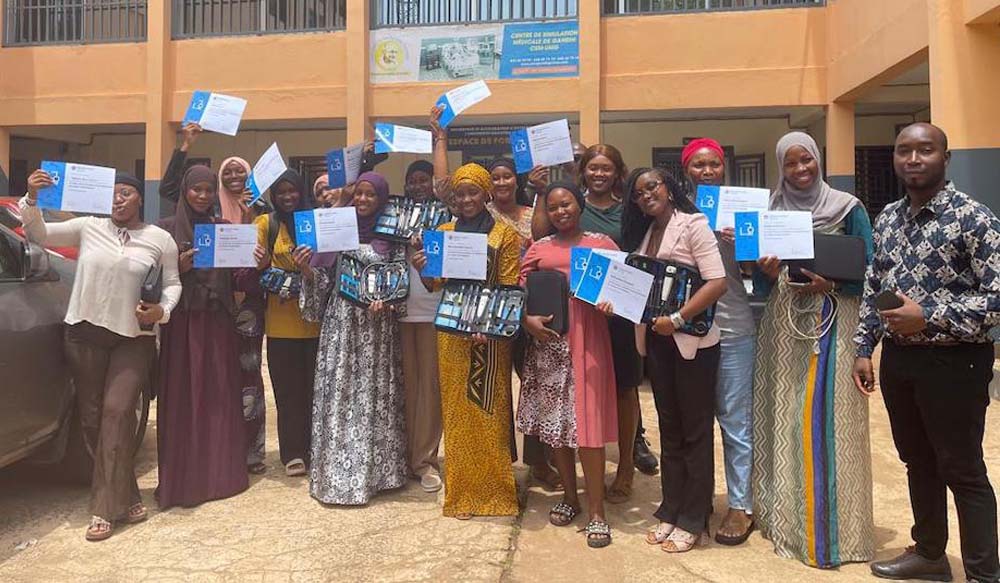Around the world, our 130 chapters and special interest groups work locally, regionally, and globally to keep the Internet a force for good: open, globally connected, secure, and trustworthy. Each month, we provide a brief overview of just some of the things they have achieved in the previous month.
Spotlight on Guinea
🇬🇳 Guinea Chapter introduced its Internet Development Lab, a space for the whole community to learn, create, and collaborate to build a more accessible, safe, secure, and inclusive Internet. Supported by an Internet Society Foundation Beyond the Net grant, the lab was equipped with 45 computers and networking equipment and provides access to training, projects, and other opportunities.
Alongside the lab, the chapter launched its first ‘practical day’—Women Engineers 2.0—and the trainees left with solid skills and concrete tools to work in the field confidently.
Chapter Activities
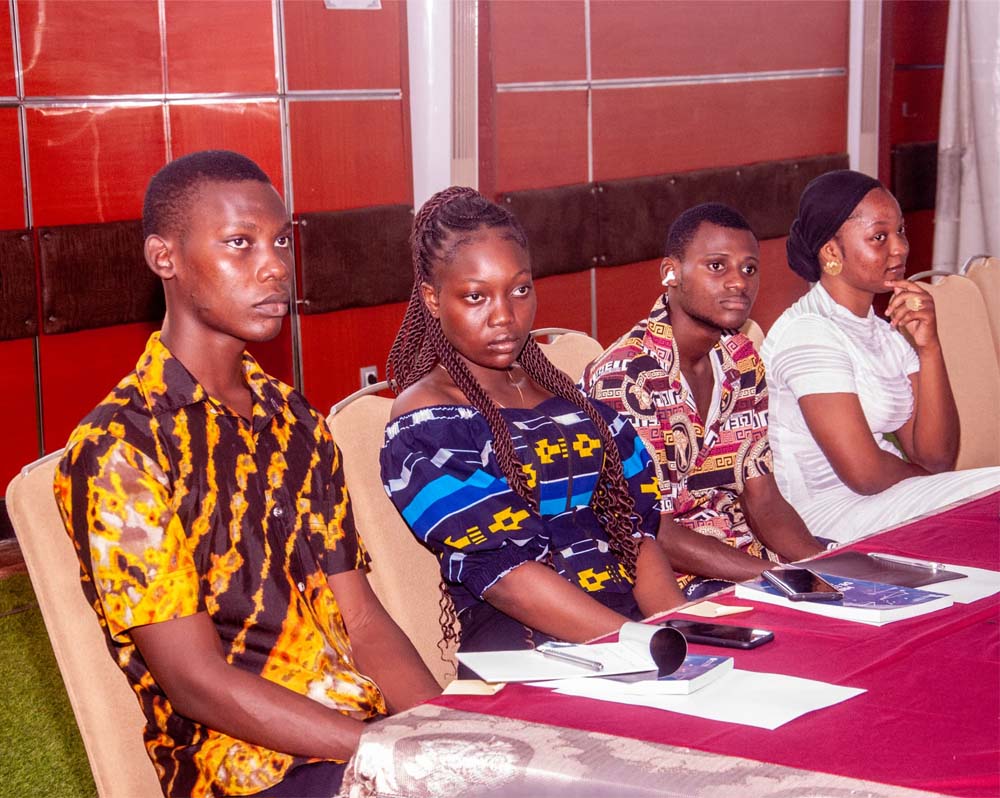
🇧🇯 Benin Chapter trained 60 web developers on Universal Acceptance during a one-day training workshop in collaboration with the ICANN technical team. Universal Acceptance is a fundamental requirement to ensure that the Internet is truly multilingual and inclusive.
🇧🇮 Burundi Chapter collaborated with ICANN and the .bi registry to organize a two-day workshop to support the deployment of Domain Name System Security Extensions (DNSSEC) in Burundi. After seeing the Internet Society Pulse Country Report for Burundi, the chapter realized that DNSSEC was not deployed and contacted the .bi registry and ICANN to support the workshop. DNSSEC is essential for a secure and trustworthy Internet.
Is DNSSEC active in your country? Find out in the Pulse Country Reports.
🇧🇴 Bolivia Chapter, in collaboration with the Internet Society Foundation, volunteers from the Instituto Sebastian Obermaier, and with support from the Bolivian Telecommunications and Transport Regulatory Authority (ATT), successfully deployed a community network to bring sustainable Internet access to the Indigenous community of Atahuallpani in La Paz, Bolivia.
With the nearest fiber-optic connection located 7.5 km away in Sorata, the project involved a detailed technical study, community-led planning, and the installation of high-performance equipment to establish a long-distance wireless link. This initiative strengthened education, cultural preservation, and digital rights in the area.
Find out how we’re connecting the unconnected.
🇨🇲 Cameroon Chapter is running a multi-city Internet safety awareness campaign targeting young people. This is the chapter’s contribution to the government’s effort to ensure the safe and responsible use of the Internet in Cameroon. It also helps prevent Internet shutdowns, as government-mandated shutdowns are usually justified by the “misuse” of the Internet by young people.
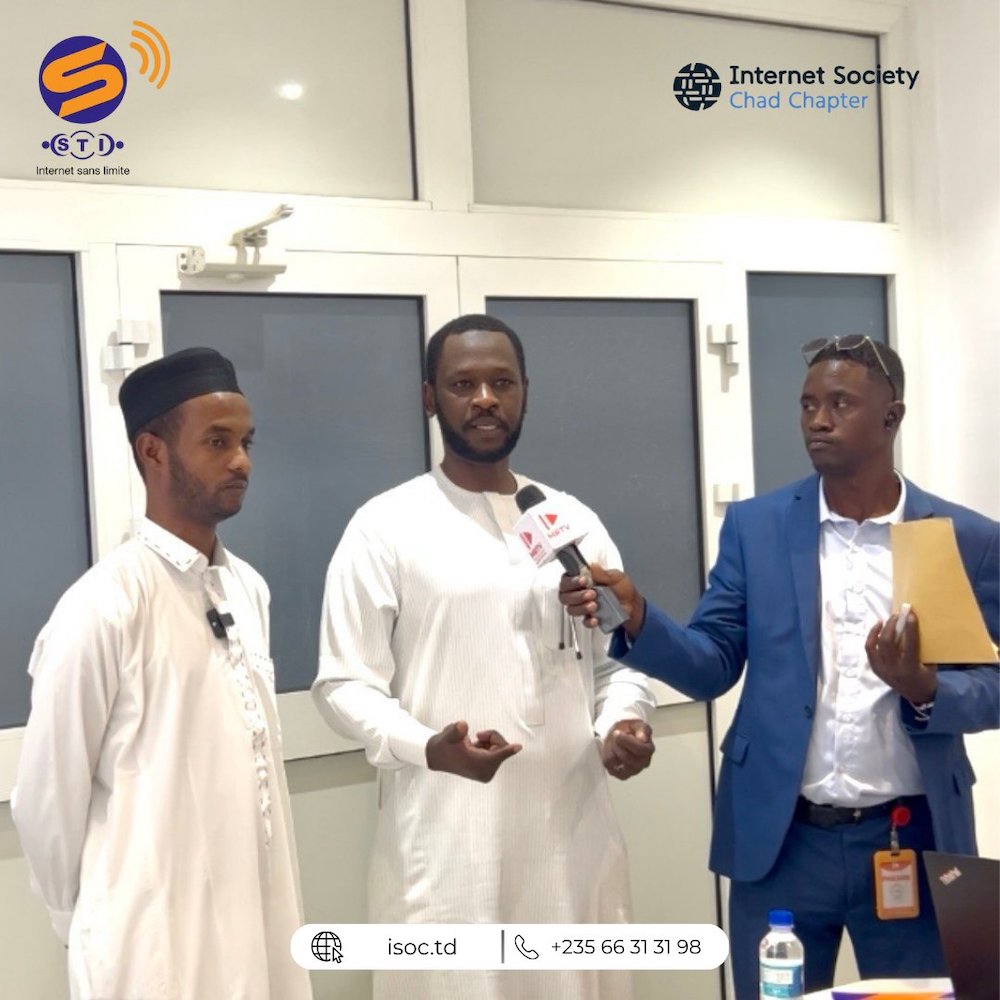
🇹🇩 Chad Chapter kicked off a two-day training workshop to provide young IT graduates with hands-on skills in network operations. Because of the high demand, the chapter is discussing how to scale this initiative to train more graduates together with our Training, Education, and Learning team.
The chapter had a busy month, also launching LabNetTchad to support Internet capacity building across the country. The chapter also collaborated with the Internet Society Foundation’s Training, Learning, and Education team to organize a five-day peering workshop in N’Djamena. This technical training supported 36 participants from local Internet service providers and network operators to help sustain the local Internet exchange point and grow the peering ecosystem in Chad.
Have you seen the wide range of free courses on offer on our Learning platform?
🇪🇬 Egypt Chapter held the fourth in its infrastructure webinar series with a session on ‘The Planet Paradox: Digital Infrastructure & Environmental Responsibility.’ The session explored the real-world impact of digital infrastructure on the planet—as the digital economy continues to grow at an unprecedented pace, the demand for the infrastructure that powers it accelerates.
🇫🇷 France Chapter, alongside the Internet Governance and Regulation Working Group, organized the second annual conference, #NetGouv25. Stakeholders from many different industries gathered to discuss the most pressing issues facing Internet governance and regulation.
🇭🇳 Honduras Chapter invited Internet Society staff to present on global Internet law for its Día Mundial del Internet (Internet Day) event.
🇮🇳 India Chennai Chapter conducted its Women Empowerment Technical Training 2025 Bootcamp. One of the highlights of the bootcamp was a poster presentation, where trainees creatively showcased their understanding of the online sessions on Fundamentals of Designing and Deploying Computer Networks (DDCN), an Internet Society Learning course. The chapter also held a webinar where Internet Society staff shared insights on the policy tensions around end-to-end encryption, along with the basics of encryption.
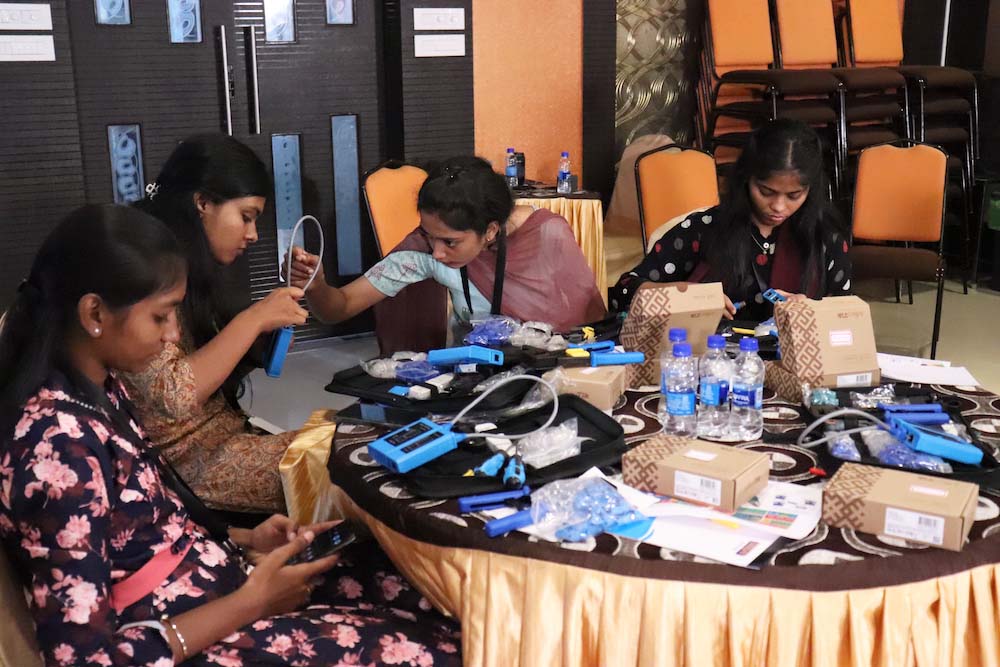
See how you can help extend Encryption.
🇱🇧 Lebanon Chapter produced an encryption explainer video in Arabic using the Global Encryption Coalition’s A Parents’ Guide to Encryption as reference material. Having information in local languages is essential for building a safer, more trustworthy, and inclusive Internet.
🇳🇪 Niger Chapter hosted a successful webinar to help newly connected Internet users in Niger have a safer online experience. Chapter experts explained how to identify phishing, social engineering attacks, and more. When they first get connected, new Internet users enter a complex digital environment, which can be difficult to navigate safely. Courses such as these help mitigate the risks. The chapter also held a two-day DNSSEC training workshop, launching the momentum towards national DNSSEC adoption.
Are you interested in online trust and safety? Find out how we’re helping newly connected users have a safer online experience.
🇺🇸 San Francisco Bay Area Chapter hosted Internet Day SF. This community festival focused on learning about modern Internet technologies such as Web3 and HTTP/3, understanding how humane metrics can impact application evolution, and the ever-evolving question of ‘What can the Internet become?’ The event brought together technologists, researchers, and enthusiasts who shared insights and facilitated innovation in the digital landscape.
🇹🇿 Tanzania Chapter signed a memorandum of understanding with the Open University of Tanzania, an online education university. The memorandum focuses on providing trainings for students in different regions of the country where the university has a presence, and embarking on a Community Network Readiness Assessment for the region of Manyara.
Could a community network help bridge the digital divide in your community?
🇺🇬 Uganda Chapter partnered with a local nonprofit (Bridge Africa Research Organization) to conduct a comprehensive Child Online Safety Training session at a local secondary school. The training aimed to empower students with the knowledge and skills to navigate the Internet safely and responsibly. It also taught students crucial lessons on how to protect personal information, deal with cyberbullying, and report any form of abuse they may experience online.
The chapter also hosted a webinar to present the findings of its research study, funded by an Internet Society Foundation grant, on “Internet use in schools in Uganda’s capital city.” These findings will help the chapter and other stakeholders take targeted action.
🇺🇾 Uruguay Chapter held a day-long event on Universal Acceptance, with dialogue, technical learning, and networking to help support steps toward a truly inclusive Internet, where everyone can participate without technical or linguistic barriers.
🇿🇼 Zimbabwe Chapter saw another group of 35 people with disabilities graduate from its five-day training on advanced digital skills. This is part of a multi-year project that the chapter is implementing in partnership with the Zimbabwe Regulator to help those with disabilities navigate the online world.
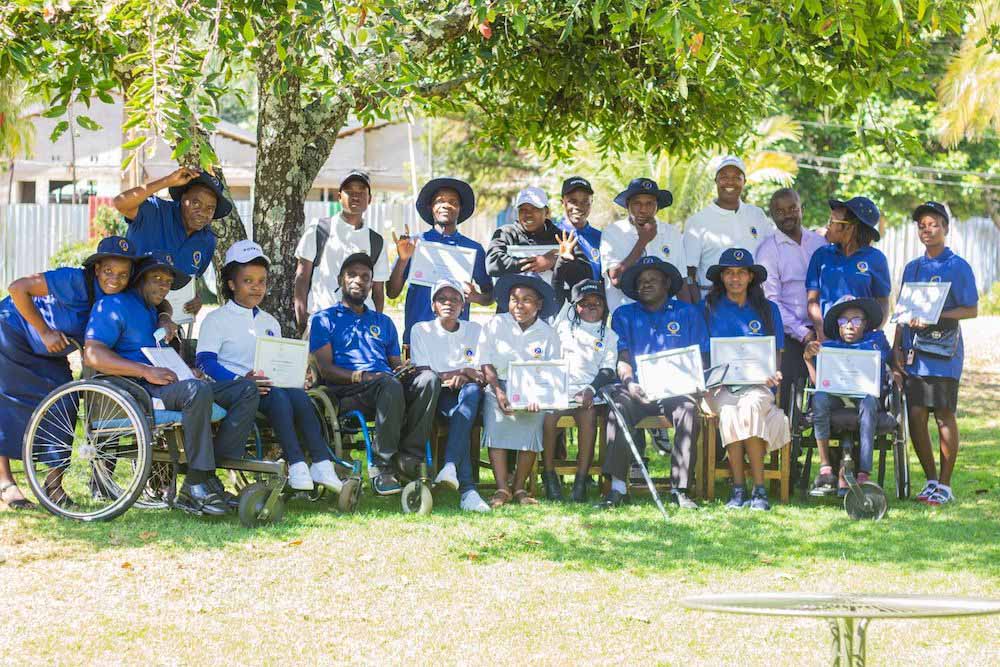
Special Interest Groups and Standing Groups
🚪 The Online Safety Special Interest Group’s lead facilitator, Godsway Kubi, wrote a blog entitled Encryption Under Threat: The UK’s Backdoor Mandate and Its Impact on Online Safety. This mandate threatens to weaken encryption and potentially compromise online safety and privacy. The blog highlighted why this policy could weaken security for all users, making data vulnerable to cyberattacks.
Internet Governance Forums (IGFs) and Schools of Internet Governance
🇿🇦🇸🇸🇹🇬🇺🇬 South Africa, South Sudan, Togoand Uganda Chapters successfully organized their national Internet governance forums and schools. In addition, the Uganda Chapter organized the second edition of the Uganda Parliamentary IGF, aiming to encourage lawmakers to use the multistakeholder approach for Internet-related laws. Internet Society chapters play a key role in promoting the multi-stakeholder Internet governance approach in their countries.
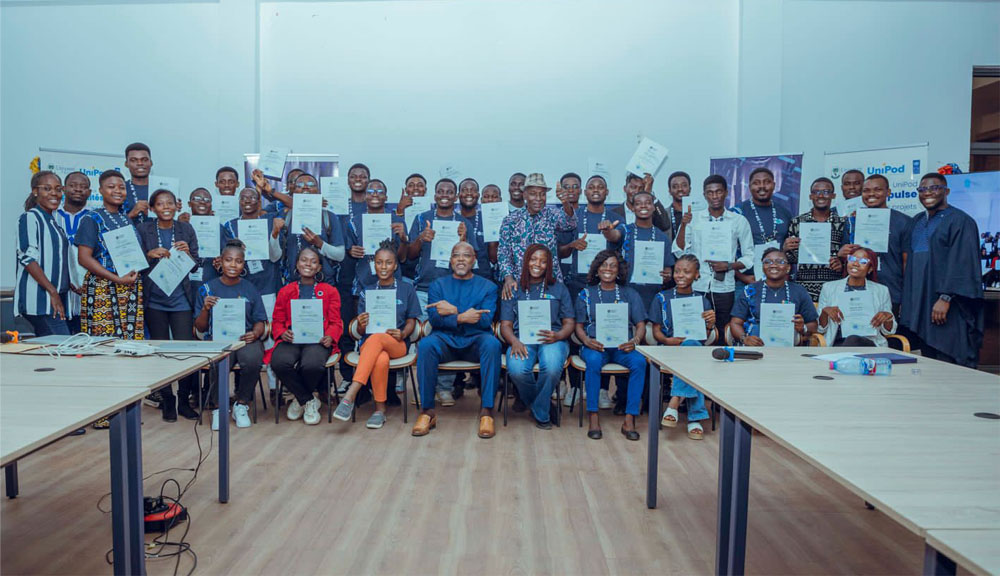
The Internet Society Foundation provides funding for recognized national and regional Internet Governance Forum events.
Get involved! Find your local Internet Society chapter and take action at a local level to make global change.
Image © Internet Society Benin Chapter, © Internet Society Guinea Chapter, © Internet Society Benin Chapter, © Internet Society Chad Chapter, © Internet Society India Chennai Chapter, © Internet Society Zimbabwe Chapter, © Internet Society Togo Chapter

